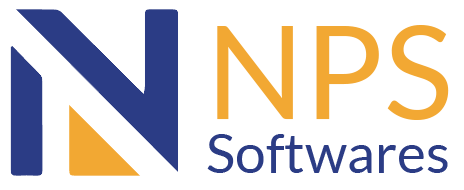AI and it’s recent trends with software development
Artificial intelligence is transforming the landscape of software development, revolutionizing the way applications are built, tested, and deployed. The integration of AI into software development processes is not just a trend but a fundamental shift that is driving innovation, efficiency, and quality. Recent advancements in AI are enabling developers to automate repetitive tasks, enhance decision-making, and create more intelligent and adaptive software solutions. This shift is influencing every stage of the software development lifecycle, from planning and design to coding, testing, and maintenance. The impact of AI on software development is profound, and understanding the recent trends is crucial for staying competitive in the rapidly evolving tech industry.
One of the most significant trends in AI and software development is the use of machine learning algorithms to enhance the coding process. Machine learning models can analyze vast amounts of code and identify patterns that can be used to suggest code snippets, detect bugs, and optimize performance. This is particularly useful in large codebases where manual code review and optimization can be time-consuming and error-prone. AI-powered code completion tools like GitHub Copilot are helping developers write code faster and with fewer errors by providing intelligent suggestions based on the context of the code being written. These tools not only improve productivity but also help in maintaining high code quality.
Another emerging trend is the application of natural language processing in software development. NLP technologies enable computers to understand and generate human language, making it possible to automate tasks such as code documentation, user interface design, and even coding itself. Developers can now interact with their development environments using natural language commands, streamlining the development process and reducing the learning curve for new tools and frameworks. This is particularly beneficial for teams working on complex projects where clear communication and documentation are essential for success. By leveraging NLP, developers can create more intuitive and user-friendly software, enhancing the overall user experience.
AI is also playing a crucial role in software testing and quality assurance. Traditional testing methods are often time-consuming and require extensive manual effort. AI-powered testing tools can automate various aspects of the testing process, including test case generation, execution, and analysis. These tools use machine learning algorithms to identify potential issues in the code and prioritize them based on their severity and impact. This allows developers to focus on fixing the most critical issues first, improving the overall quality and reliability of the software. Additionally, AI can be used to simulate different user behaviors and test scenarios, ensuring that the software performs well under various conditions.
The use of AI in software development is not limited to coding and testing; it is also transforming the way software is designed and maintained. AI-driven design tools can analyze user data and provide insights into user preferences and behaviors, helping designers create more effective and engaging user interfaces. These tools can also generate design recommendations and automate repetitive design tasks, allowing designers to focus on more creative aspects of their work. In terms of maintenance, AI can predict potential issues before they occur by analyzing system logs and performance metrics. This proactive approach to maintenance helps in reducing downtime and improving the overall performance and reliability of the software.
One of the most exciting developments in AI and software development is the rise of AI-driven development platforms. These platforms provide a comprehensive suite of tools and services that leverage AI to automate various aspects of the software development lifecycle. For example, some platforms offer AI-powered project management tools that can predict project timelines and resource requirements based on historical data. Others provide AI-driven code generation and optimization tools that can automatically generate code based on high-level specifications. These platforms are making it easier for developers to build complex software systems with less effort and in less time.
AI is also enabling more effective collaboration and knowledge sharing among development teams. AI-powered collaboration tools can analyze team interactions and provide insights into team dynamics, helping managers identify potential issues and take corrective actions. These tools can also automate knowledge sharing by analyzing project documentation and generating summaries and recommendations for best practices. This enhances the overall productivity and effectiveness of development teams, ensuring that they can deliver high-quality software on time and within budget.
The integration of AI into software development is not without its challenges. One of the primary concerns is the ethical implications of using AI in software development. Developers need to ensure that their AI models are trained on unbiased data and do not perpetuate existing biases or create new ones. This requires careful consideration of the data used to train AI models and the potential impact of AI-driven decisions on users and society as a whole. Additionally, developers need to ensure that their AI models are transparent and explainable, allowing users to understand how decisions are being made and trust the outcomes.
Another challenge is the need for continuous learning and adaptation. The field of AI is rapidly evolving, and developers need to stay up-to-date with the latest advancements and best practices. This requires a commitment to continuous learning and professional development, as well as a willingness to experiment with new tools and techniques. Developers also need to be prepared to adapt their development processes and workflows to incorporate AI-driven tools and methodologies. This may require changes to existing practices and the adoption of new frameworks and standards.
Despite these challenges, the potential benefits of AI in software development are immense. AI is enabling developers to build more intelligent, efficient, and reliable software systems that can adapt to changing user needs and environmental conditions. By automating repetitive tasks and providing intelligent insights, AI is freeing up developers to focus on more

